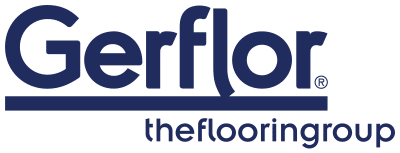In an ever-changing economic environment, companies need to be able to make informed decisions and react quickly to change to remain competitive. Performance management tools are software solutions that help companies collect, analyze and exploit their data to improve decision-making and optimize their processes. But with so many options available on the market, how do you choose the right solution for your business? In this article, we’ll explore the different options available and help you choose the performance management tool that best suits your needs and objectives.
What are performance management tools ?
Performance management tools are software applications that enable companies to collect, analyze and visualize their data in order to make informed decisions. They provide an overview of the company, enabling managers to monitor performance and identify areas for improvement.
Key functions of performance management tools
Performance management tools offer several key functions, including :
Performance monitoring
Performance management tools enable companies to monitor their performance in real time, using key performance indicators (KPIs) such as sales, costs, profitability and lead times.
Data analysis
Performance management tools enable companies to analyze their data to identify trends, successes and areas for improvement.
Forecasts and simulations
Performance management tools enable companies to simulate different scenarios to anticipate the impact of decisions or external changes.
Automated reporting
Performance management tools enable companies to automatically generate reliable, consolidated reports.
Benefits of performance management tools
Performance management tools offer a number of benefits, including
Informed decision-making
Performance management tools enable companies to make informed decisions based on reliable, consolidated data.
Time savings
Performance management tools enable companies to save time by automating data collection and analysis tasks.
Improved performance
Performance management tools enable companies to improve their performance by identifying areas for improvement and implementing corrective actions.
Challenges associated with performance management tools
Despite the benefits of performance management tools, there are a number of challenges associated with their implementation and use. One of the main challenges is integration with the company’s existing systems, which can be a technical challenge. In addition, data quality is essential to guarantee the effectiveness of performance management tools. It is therefore important to ensure that data is of high quality and reliable.
Training and support are also key elements in ensuring the effective adoption and use of performance management tools. Users need to be trained to use the tools effectively, and it is important to provide technical support to help users resolve any problems they encounter. In addition, performance management tools can be costly, especially for small and medium-sized businesses. Finally, security is an essential element in protecting sensitive company data.
Change management
Implementing a performance management tool requires effective change management to ensure that users adopt and use the solution.
Define your objectives
Start by clearly defining what you want to achieve by implementing the tools.
Identify your stakeholders
Identify the teams and individuals who will be impacted by the implementation of the tool, and develop a communication plan to inform them of the benefits and changes expected.
Train your users
Ensure that users are trained to use the tool effectively and to take full advantage of its functionalities.
Looking to the future
Performance management tools are constantly evolving to meet the needs of companies. Here are a few key trends that will shape the future of performance management tools. Artificial intelligence will play an increasingly important role in analysis and forecasting, enabling analyses to be more in-depth and forecasts more reliable, enabling companies to make more informed decisions.
Cloud adoption will also be a key trend, enabling tools to offer greater flexibility and scalability, meeting the needs of ever-changing businesses. Mobility will also be a key success factor for performance management tools, enabling users to work more flexibly and respond more quickly to business needs through mobile access.
Conclusion
Performance management tools are software solutions that help companies collect, analyze and exploit their data to improve decision-making and optimize their processes. Despite the challenges associated with their implementation and use, performance management tools offer numerous benefits for companies. As a consulting firm and management solutions integrator, BHI Consulting is here to help you choose the right solution for your business, and implement an effective performance management strategy. Our team of business experts is at your disposal to help you improve your decision-making and performance.
In particular, we offer our CCH Tagetik tool, a complete, integrated performance management solution.
Contact us today to find out how our business expertise and performance management tools can help you achieve your goals and succeed in today’s ever-changing business environment.

















